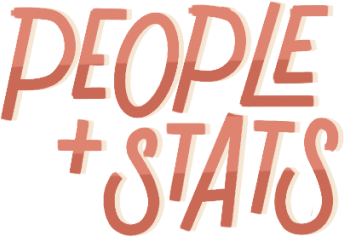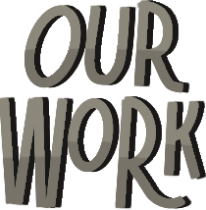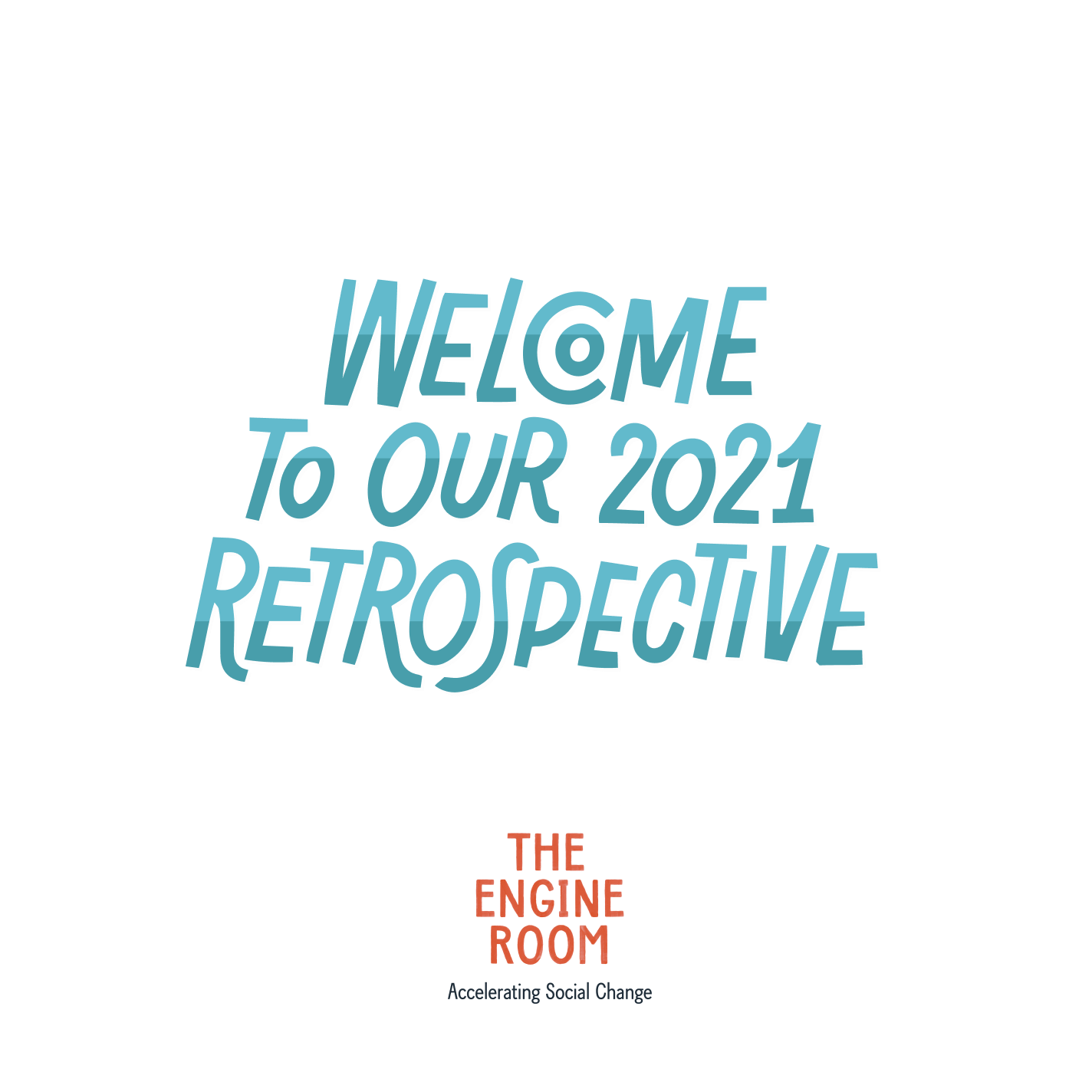members joined
our website
ON TWITTER
acquired

We'd love to hear from you.
Our newsletter is a great place for updates!
Further investigating how existing digital systems impact vulnerable communities, exploring the links between digital rights and climate and environmental justice, looking into how biometrics are being used in the humanitarian sector, understanding how responsible data practices can be implemented by social justice organisations, and more.
Supporting our partners, and one another, as we navigate another uncertain year.
Supporting activist communities to choose and implement the tech they need to conduct their service delivery, operations and organising.
Working with social justice actors as they seek to responsibly integrate data and technology into their work, and to mitigate potential harms caused by digital systems.
spend our time primarily:
Civil society organisations are increasingly confronting the potential harms posed by technology
As tech-related social injustices expand, this year we've seen more groups and organisations pushed into urgently dealing with the potential harms related to technology: from investigating how surveillance technologies could harm their communities, to fighting digital ID systems that pose threats to human rights, to facing ciberpatrullaje and internet shutdowns by authoritarian governments. These threats resonate with much of what we outlined in our most recent strategy — which will continue to guide our work.
Social justice organisations need responsible, justice-focused digital transformation frameworks
Throughout 2021, in the context of the ongoing public health emergency, civil society organisations have continued to transition to digital spaces, shift their programmatic work, adapt internal operations and change technical infrastructures. The stakes around technology and data use are higher than ever – we’ve seen how a reliance on videoconferencing, for example, opens up new risks that some organisations are unprepared to mitigate.
We're starting 2022 eager to support civil society organisations to go through digital transformation in responsible, slower, sustainable ways; we'll make sure to share our learnings as we go.

calls Hosted
published
Spread across 11 countries, our team worked with partners around the world, conducted a number of research projects and played at least 20 rounds of online pictionary during the course of two (also online) retreats. In 2021 our team supported one another through challenging times, as the ongoing pandemic continues to affect us all in different ways. We ended the year with a core team of 18 individuals on four continents.

Supporting civil society organisations through Light-Touch Support
As the world faced the second year of the Covid-19 pandemic, it was clearer than ever that strengthening civil society's ability to work with technology and data in responsible, effective ways continues to be fundamental. This year, we supported over 60 organisations in more than 20 countries with their tech and data projects.
- In response to the violent repression of the social mobilisations in Colombia, we offered dedicated light-touch support to activists, organisations and movements who wanted to take preventive actions around their digital and organisational security.
- With Athena, an international group working to advance women's and girls' human rights in East and Southern Africa, we worked to assess potential video conferencing options that fit their needs as they organised a hybrid gathering to discuss Sexual and Reproductive Health and Rights and its connection to digital technologies.
- We supported Digital Health Disparities Initiative (DHDI), who are working on a project with civil society partners in Gaza to identify challenges that local communities face regarding access to nutrition, in adopting responsible data practices and finding tools that can be used with intermittent connectivity.
- We worked with Themis, a feminist organization based in Brazil who uses digital technologies to promote access to justice, on their organisational security and information management, and provided guidance on how to lead tech projects.
Based on our experience with LiTS and research projects, we prepared some resources to support organisations in making tech-related decisions:
- Building tools in social justice organisations: what to consider before getting started. Organisations often come to us when they are considering building new tech tools to support some aspect of their work. This resource offers guidance around how to make sure this is the right path before beginning.
- Technology in the service of Justice. The past few years have shown how digital technologies — and access to them — need to be radically reimagined to meet the needs, politics and principles of everyone. This resource offers some guidance around choosing tech tools that align with your mission and values.
Responsible Data: Celebrating 8 years of community collaboration
The Responsible Data community is celebrating 8 years of its existence: What started as a relatively small group of practitioners wanting to address the challenges and opportunities for responsibly using data for social change has grown into a community of over 1200 members, who continue to have healthy debates and share resources about strategy, compliance, innovation and emerging risks.
To mark the community's growth, we invited 13 experts and members of the community to write about how various Responsible Data-related topics have evolved since we first convened the community. The collection of articles includes a look back at the origins of the Responsible Data Community, a discussion around responsible approach to informed consent, considerations about responsible data in fragile and conflict settings and much more.
To expand participants' chances to get to know each other, we held a second iteration of the RD Community Connections, an initiative designed to facilitate more serendipitous connections between RD community members. We had over 20 participants from 8 countries, from academics to public sector workers and practitioners from humanitarian organisations.
During 2022, we'll be working with a Community Manager who will support community members, curate accessible resources and sector developments that might be of interest to those on the list; and host community calls to provide connection and network opportunities. Keep an eye out for new and exciting chances to engage with the RD community.
Cultivating practices for sustainable support
Through the tumult of the year, we've been reminded that provisioning support is a privilege, and it's one that requires we design our internal and external processes with care at the centre.
This year, our team dedicated time to cultivating practices and considering new approaches — both internal and external — that would best ensure our ability to continue supporting our partners. Internally, this resulted in us implementing systems to encourage individual and team-wide learning, and strengthening our HR capacity to ensure our policies are effective, efficient and in line with our organisational values. In terms of how we support our partners, this has led to us adjusting our intensive support format and investigating ways to support members of the Responsible Data community.
Exploring how climate and environmental justice can be centered in digital rights movements
In the face of the ongoing climate emergency, and as the fight for environmental justice becomes more crucial, we began a new research project supported by the Ford Foundation, Ariadne and Mozilla that aims to explore the areas where digital rights and environmental justice intersect, and identify opportunities for strategic action.
At time of publishing this retrospective, we're still in the early stages of this research — if it resonates with your work in any way, we'd love to hear from you!
Assessing the ethical considerations, risks & benefits of predictive analytics for children
While predictive analytics (PA) use has been increasing over the last decade in a range of sectors, these systems are often designed with consenting adults in mind, without a focus on the unique needs and vulnerabilities of children.
In partnership with UNICEF, we conducted research into predictive analytics specifically in relation to children. We found that, while PA has the potential to offer benefits in certain contexts, using it to generate predictions targeted to individual children carries significant potential risk, and comprehensive risk mitigation measures are needed to avoid causing harm.
Strengthening intersectional collaboration between social justice and digital rights communities
This year we conducted a research project on intersectional partnerships between social justice communities and digital rights communities during the pandemic. We sought to understand the impact that data and technology practices shaped by Covid-19 have had on social justice communities.
Through desk research, regional community calls and interviews, our research showed that digital inequities have deepened during the pandemic and many activists are now facing a digital emergency. The research highlighted that intersectional collaboration between social justice and digital rights activists is critical going forward, particularly considering how Covid-19 has magnified and deepened existing inequities. Read our report here.
Bringing political values to decisions about tech with FRIDA
This year, we accompanied FRIDA in their development of processes for retaining, archiving and deleting the data they held. We worked closely with their team to ensure that their information management practices aligned with their organisational values and workflows.
As part of this work, we developed a resource called “Becoming RAD — How to Retain, Archive and Dispose of data responsibly”, designed to support organisations taking the first steps towards responsible data retention, archiving and deletion practices. The tipsheets are available in English on our website and in French (thanks to information management non-profit CartONG).
Using technology in strategic ways to support people with disabilities
Operating in 38 countries, L'Arche is an international organisation working to increase access to support networks, housing, and other supportive programming for people who have disabilities.
Together, we worked to improve the organisation’s strategic use of technology to build an effective, digital workplace. After conducting interviews with team members in multiple countries, sharing an internal survey and undergoing extensive research, we were able to identify a CRM (Constituent Relationship Management) system that looked to be the best fit for L’Arche’s evolving needs and work together on an implementation plan for the organisation to carry out across its teams.
Revamping our intensive tech & data support with Matchbox
Since our pro-bono Matchbox intensive support programme was launched over seven years ago, we have partnered with selected organisations through an open call selection process.
In 2021, we revamped what our Matchbox programme looks like, changing both the process through which we partner with organisations and what our support looks like. As we revamp Matchbox, we expect these changes to make room for more flexibility and more organic relationship-building with our partners, and to enhance the quality of our support. Learn more about how your organisation can join the programme.

Mapping tech tools for human rights documentation
Drawing from our 2020 research with PILPG and HURIDOCS on how technology could better fit the needs of human rights documenters, we published “Tech tools for human rights documentation: a snapshot of the landscape.”
This resource gives an overview of some of the tools currently being used for human rights documentation, including data collection tools, secure camera apps, and database management and publishing tools. Drawing from interviews and published learnings, it also discusses some of common challenges — and mitigation strategies — faced by tool developers working on technology designed for use in a human rights documentation context.
Reimagining digital ID systems rooted in justice
What could a rights-respecting, locally relevant, justice-oriented approach to digital ID look like? Building on our previous work on people's lived experiences with digital identification (ID) systems — and together with Open Society Foundations and a team of in-country researchers working in Indonesia, Jamaica, Pakistan and Uganda — we set out to answer this question.
We found that creating digital ID systems rooted in justice is a process that depends heavily on:
- Disseminating interdisciplinary and multilingual resources about digital ID systems (and their impacts) to a wider group of civil society actors, including those outside the digital rights space
- Amplifying the experiences and prioritizing the agendas of groups who are most affected by digital ID systems
- Creating more spaces for diverse civil society actors to meet and collaborate on digital ID issues









